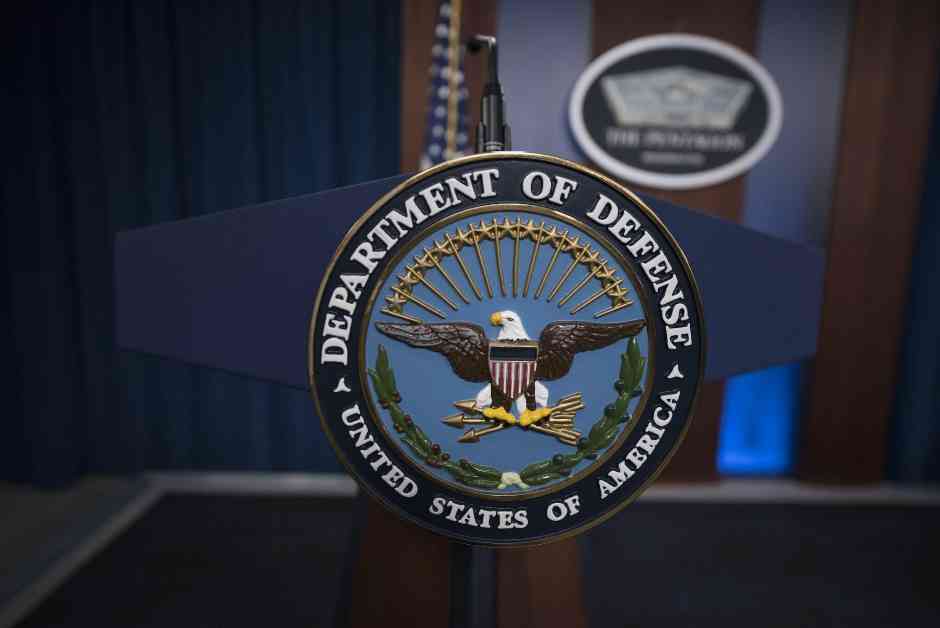The Department of Defense is making significant strides in implementing its Cybersecurity Maturity Model Certification 2.0 (CMMC) program for contractors. A newly proposed rule aims to integrate new cybersecurity requirements into all contracts for vendors looking to engage in business with the U.S. military involving controlled unclassified information.
Under the CMMC 2.0 program, contractors and subcontractors working with the DOD on projects related to controlled unclassified information or federal contract information will need to achieve one of three levels of CMMC compliance. This compliance level will depend on the sensitivity of the information involved in their work.
The proposed rule, published in the Federal Register, seeks to amend the Defense Federal Acquisition Regulation Supplement to incorporate these cybersecurity requirements into contracts as part of the broader CMMC 2.0 program. This program is currently in the federal rulemaking process, following a failed previous iteration with stricter requirements.
The previous proposed rule from December 2023 aimed to establish the CMMC program in federal law, outlining the assessment mechanism to ensure defense contractors have implemented necessary security measures for Federal Contract Information (FCI) and Controlled Unclassified Information (CUI) security requirements for specific programs.
The latest proposed rule complements this by outlining the implementation of the program in DOD contracts. It requires contractors to provide current CMMC certificates or self-assessments at the required level for information systems handling FCI or CUI during contract performance.
The proposed rule also includes a phased rollout plan for the requirements into contracts over the next three years. During this period, CMMC certification requirements must be cascaded down to subcontractors at all tiers when processing, storing, or transmitting FCI or CUI.
Additionally, the rule sets requirements for contracting officers to verify contractor compliance with CMMC standards, updates the definition of controlled unclassified information, and introduces provisions to notify contractors of CMMC requirements in contracts.
The comment period for the proposed rule will run until October 15, allowing stakeholders to provide feedback for potential adjustments before final approval. If the rulemaking process proceeds smoothly, the phased rollout of CMMC could commence in mid-to-late 2025.
Implications of the Proposed Rule
The introduction of the proposed rule signifies a substantial shift in the cybersecurity landscape for defense contractors looking to engage with the Department of Defense. By mandating CMMC compliance as a contractual requirement, the DOD is emphasizing the importance of robust cybersecurity measures in safeguarding sensitive government information.
Contractors will need to invest in enhancing their cybersecurity capabilities to meet the specified CMMC compliance levels. This may involve implementing advanced security protocols, conducting regular audits, and ensuring robust data protection measures are in place throughout the contract lifecycle.
Challenges and Opportunities for Contractors
While the proposed rule presents challenges for contractors in terms of meeting the stringent cybersecurity requirements, it also opens up opportunities for growth and specialization in the cybersecurity sector. Contractors that can demonstrate high levels of CMMC compliance may gain a competitive edge in securing lucrative contracts with the DOD.
The phased rollout of CMMC requirements allows contractors time to adapt and prepare for the transition. It also provides an opportunity for cybersecurity firms to offer specialized services to help contractors achieve and maintain CMMC compliance.
Industry Response and Future Outlook
The proposed rule has elicited mixed responses from industry stakeholders. While some contractors view it as a necessary step towards strengthening cybersecurity practices, others have expressed concerns about the potential costs and operational challenges associated with achieving and maintaining CMMC compliance.
As the DOD moves forward with finalizing the rule, contractors will need to closely monitor developments and ensure they are well-prepared to meet the upcoming requirements. Collaboration with cybersecurity experts and investing in training and technology solutions will be key to navigating the evolving cybersecurity landscape.
In conclusion, the proposed rule marks a significant milestone in the DOD’s efforts to enhance cybersecurity standards for contractors. By integrating CMMC requirements into contracts, the DOD aims to bolster its defenses against cyber threats and safeguard sensitive information critical to national security. Contractors must prioritize cybersecurity readiness to adapt to the changing regulatory landscape and seize opportunities for growth in the defense sector.
